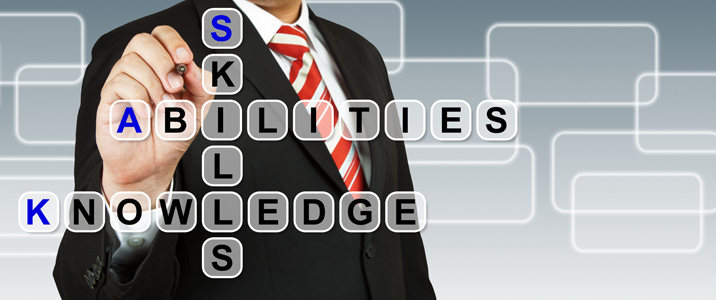
Hunt Scanlon Media recently reported that employers will face increasing challenges to find and retain employees. These challenges begin with the hiring process: “75% of employer responses stated that their hiring process, from initial interview to offer, takes more than 3 weeks, while the vast majority of professionals surveyed felt it should take two weeks at most.”
Many employers and candidates feel the process is not much better than a crapshoot. Generally, résumés are only 2% predictive of a candidate’s future job performance, and not even an interview can tell how successful a candidate will be. Therefore, it is no surprise that the hiring process often feels like playing a game of darts. With those kinds of numbers working against you, wouldn’t you like to use a pre-assessment tool that will improve your chances of getting the right candidate in a shorter period of time?
More employers are recognizing the power of assessments to improve the performance of their leadership and employees. Assessments such as DISC and Myers-Briggs provide great information, but they are ineffective as pre-hire assessment tools because they do not predict future behavior. Pre-hire assessments, such as those provided by eSkill, have been shown to improve the hiring process by being predictive of 35% of future workplace performance, much more than the 2% predictability of résumés. Unlike the DISC and Myers-Briggs, pre-hire assessments can be customized to your company’s particular positions, increasing their predictive power. In addition, they save you a great deal of time and money over the hiring process.
As many companies speed up their selection process in an attempt to satisfy prospective employees’ expectations that hiring should move quickly, mismatches between companies and new hires occur more frequently. Employees decide very quickly that a job or company failed to meet their expectations, and their tenure often lasts less than two years. With the costs of recruitment and training, the company would be lucky to break-even on the investment they made in hiring that employee. More often, the company loses money when that employee leaves. Having a reliable and valid pre-assessment that improves your predictive capabilities could eliminate such risks in the hiring process.
Pre-hire assessments level the playing field for many employers. Many candidates have much more experience in the hiring process than do employers. Candidates get coached and practice how to answer questions. Subsequently, many interviewers get swayed by the candidate’s responses, which may, or may not be telling of their capabilities. Interviewers, even the best-trained ones, are susceptible to biases in the interview process. Pre-hire assessments are not susceptible to these biases.
The Uniform Guidelines on Employee Selections Procedures require that any assessment must meet the standard of being both a reliable and a valid measure of what is being measured. The same standard is supposed to be applied to the interview, but meeting this standard occurs with just a modicum of success. Pre-hire assessments, however, must meet this standard and, therefore, provide an accurate picture of the candidates’ capabilities. The assessment cannot be fooled. As an example, think of what happens when you are interviewing candidates for a programming position. If a candidate professes to have 15 years of experience in coding, would you feel comfortable asking the candidate to sit down and write code on the spot for you to evaluate? According to Steve Howard, a software engineer with Google, such a challenge would tell you what you need to know about the candidate. Why not provide the challenge in a pre-hire assessment?
Because speed is of the essence in the selection process today, the “traditional” process of inviting someone to your office for the face-to-face interview is not always expedient. It can be expensive, too, especially in our global society where you may be considering candidates from other countries. Using a tool like Skype or a video interview, recorded by the candidate, can speed the process up considerably.
The use of a pre-hire assessment helps level the playing field for candidates. It takes the potential biases out of the process and makes for a fairer selection process based on the candidate’s observable skill sets. These assessments also provide sets of data that can be used to defend the company in a court of law if a candidate decides to sue the company for unfair hiring practices. However, given the validity and reliability of pre-employment assessments, the likelihood of a candidate suing will be greatly reduced.
To be competitive in today’s employment world, employers must not only be faster than their competitors but they must also be accurate and unbiased. Employers must be able to select the employee that is going to be productive and most likely to stay with the company for years. The traditional selection process will no longer help you do that, but a pre-hire assessment can help you achieve the results you desire.
How does your company systemize this pre-employment testing? Will you be the leader in your industry because you are doing a better job of selection?
3 Comments
Thank you for your article. Indeed, implementing an ATS has automated our recruiting process and helped us reduce the hiring time. So much time for resume screening, online job posting, and interview scheduling was eliminated and my hiring efforts were focused on onboarding and training the new hires.
Great article. I could not imagine my life without pre-employment screening and assessments. With an ATS, communicating with candidates, entering data, and handling administrative duties no longer need to be so time-consuming and ultimately costly in terms of time. From spending eight hours in the pre-hiring phase, I managed to reduce the paperwork needed and the selection time by half.
Yes, definitely. Integrating ATS solutions into your hiring processes could help strengthen your recruitment processes and attract and hire quality employees.